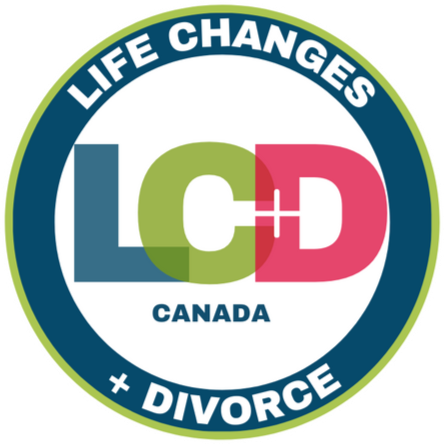Tips to Maintaining the Holiday Spirit with Alzheimer’s in the House
By Lisa Skinner
NAPA, CA – The Holiday Season is a special time of year for us to celebrate with family and friends through sharing, laughter, and creating life-long memories. However, getting everything done on time can be highly hectic. Many families struggle with the decision as to whether to include a loved one who is living with Alzheimer’s disease and dementia in the festivities. Is it a good idea to bring them along, or not? A person living with Alzheimer’s often feels a special sense of loss because of the changes in their behavior due to the disease. Families and caregivers sometimes feel overwhelmed by trying to balance maintaining traditions with the stress of caregiving.
Lisa Skinner, a behavioral specialist with over 25 years of experience in the field of Alzheimer’s disease and related dementias, is a Certified Dementia Care Trainer through the Alzheimer’s Association. She has appeared on national and regional media broadcasts, including CBS News, NBC News, Fox News, ABC News, USA Today, Health & Fitness, and many others. Her expertise in Alzheimer’s disease and caregiving is valuable for families navigating these challenges.
“It’s not only a difficult decision to make, but it’s also a difficult question to answer,” said Skinner. “Every person living with dementia experiences the disease differently, so you need to take into consideration how the disease is impacting each person individually, such as how a change in their environment affects their personalities and moods.”
Holidays can be enriching times for both your loved one diagnosed with Alzheimer’s disease as well as the family and caregivers. Family traditions provide a feeling of belonging and identity. It’s a link with a familiar past that can be quite reassuring for a person with Alzheimer’s. However, holiday celebrations, which may include other people, can cause confusion and anxiety for a person with Alzheimer’s.
Tips for Creating a Safe & Stress-Free Space
Some situations may be easier and more pleasurable than others. It’s all about finding balance in the busy holiday activities with the special care required for your loved one coping with the symptoms of Alzheimer’s disease.
Maintain Familiar Locations and Routines
“Most people living with dementia do well with a routine and with familiarity. Keep them in familiar locations free of noise, a hectic environment, too much clutter, or a stressful situation. An overload of stimulation can trigger emotions that can escalate into a potential catastrophic reaction that you might not be able to manage,” Lisa Skinner explains.Consider the Stage of the Disease
Other tips for coping with the Holidays and Alzheimer’s disease include determining what stage your loved one is in. If your loved one is in the early stages of their disease, it’s often much easier for them to cope with a change in their environment, etc., versus a person in the mid to later stages of the disease. As the disease progresses, the person living with dementia becomes more and more confused and less able to understand what is happening around them. They can also become easily agitated and/or frightened in a world that no longer makes sense to them and may rely on their instincts of flight or fight as a response to the surroundings.Limit the Duration of Visits
If you do decide to include your loved one, you may want to limit the amount of time they visit with the family. If you notice any changes such as nervousness, anxiety, irritability, or a sudden change in their level of confusion, then those are telltale signs that they are not coping well with the current environment. You can also pay close attention to their body language and demeanor to determine if they are increasingly becoming upset.Designate a Caregiver or Family Member
Finally, you should have a dedicated family member or caregiver be with your loved one at all times to watch for signs of distress and to keep reassuring your loved one that they are safe and that you will be taking them home shortly.Set Limits and Care for the Caregiver
“You need to take charge and set your own limits. Be clear about them with others,” said Skinner. “You do not have to live up to the expectations of your friends and family. As a caregiver, your situation is very different now. You need to find time for the holiday activities that you like to do like taking a walk in the neighborhood to see the holiday decorations or bake cookies. Taking care of the caregivers is also a very important way to celebrate the holidays.”
Relatable Resources
Truth, Lies & Alzheimer’s: Its Secret Faces serves as a worthy follow-up to Lisa Skinner’s #1 best-seller, Not All Who Wander Need Be Lost. The latest project, co-authored with Douglas W. Collins, continues Skinner’s quest of working with dementia-related illnesses and teaching families how they can have a better-quality relationship with their loved ones through education.
Available on Amazon.ca in Hardback, Paperback, Kindle, and Workbook formats.
Co-Author & Alzheimer’s Expert Lisa Skinner
Best-selling author Lisa Skinner is a behavioral specialist with more than a quarter-century of experience in the field of Alzheimer’s disease and related dementias. She is a Certified Dementia Care Trainer through the Alzheimer’s Association. Lisa has appeared on national and regional media broadcasts, including CBS News, NBC News, Fox News, ABC News, USA Today, Health & Fitness, and many others.
Visit her website at www.truthliesalzheimers.com
Podcast Outlets: "Truth, Lies & Alzheimer’s: Its Secret Faces"
Lisa Skinner
Lisa Skinner is a behavioral specialist with over 30 years of experience in Alzheimer's disease and related dementias. She holds certifications as a Dementia Practitioner and a Dementia Care Trainer and a degree in Human Behavior. Lisa has worked with families and caregivers, providing guidance on navigating dementia challenges. She has authored several books, including the #1 best-seller "Not All Who Wander Need Be Lost." Lisa is an internationally recognized speaker and has appeared on national and regional media broadcasts.
She also hosts the "Truth, Lies & Alzheimer's" podcast, where she shares insights and practical advice for managing the symptoms of Alzheimer's disease and dementia.
For more information and resources, visit her website at Minding Dementia.
This article, authored by Lisa Skinner, was published in the Winter 2024 issue of Life Changes Magazine. To read the full newsletter, click here: Winter 2024 LCM.
Note: The author, compiler and publisher do not assume and hereby disclaim any liability to any party due to these words coming from the author’s own opinion based on their experiences. This account is based on the author’s own personal experience. We assume no responsibility for errors or omissions in these articles.



